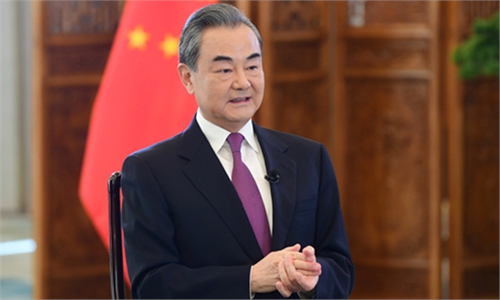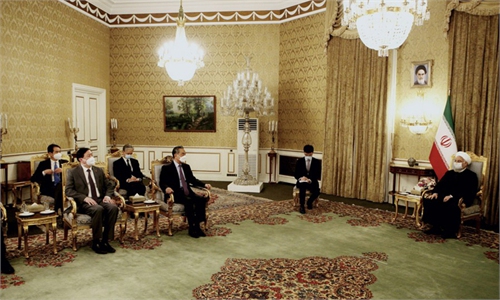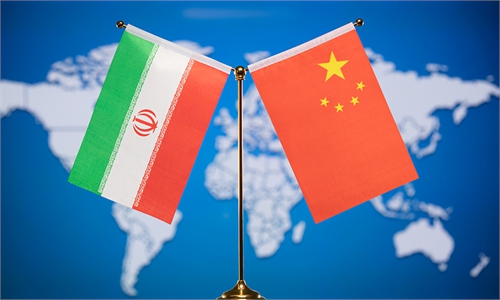COMMENTS / EXPERT ASSESSMENT
China-Iran deal shows US suppression won’t deter win-win cooperation

Illustration: Chen Xia/GT
China and Iran have recently signed a major 25-year agreement to enhance comprehensive cooperation in fields such as trade. Given its great scale and implications, the agreement has attracted widespread attention from many Western media outlets, with some already warning China's rising "influence" in the Middle East.
Under the current global and regional landscape, the strategic significance of the agreement can't be emphasized enough. It underscores that under constant suppression from the US, China, Iran and other countries are continuing cooperation that is conducive to both regional development and global stability.
The agreement is mutually beneficial. For Iran, the US' frequent extreme sanctions have pushed the country's economy into a difficult position. In addition, the impacts from the COVID-19 pandemic have put another drag on its economy. Cooperation with China would help ease Iran's economic woes.
For China, the largest oil importer in the world, the agreement can help ensure steady oil supply over the coming 25 years. The agreement is also expected to facilitate Chinese investments in Iran's banking, telecommunication, ports and railway sectors. China would also help develop free trade zone in Iran and build infrastructure for 5G networks, according to media reports.
The Chinese Foreign Ministry said that the agreement was not aimed at any third party.
Still, some Western media outlets have jumped to label the agreement as China expanding its influence in the Middle East, where the US and some other Western countries have great geopolitical interests. Such assertions came from their ill attempt to contain China, Iran and other countries' development and their ideological bias.
As the agreement shows, US' suppression has not and will not stop cooperation between China and Iran and other countries in the Middle East. Indeed, suppression would only push countries and regions to pursue more win-win cooperation.
Since US President Joe Biden took office in January, the US has adopted an allied diplomacy approach, which aims to gather a small circle of so-called democratic countries to contain and squeeze other countries such as China, Russia, and Iran. Meanwhile, it has failed to build an inclusive platform for global cooperation like the China-proposed Belt and Road Initiative (BRI).
In its latest attempt, the US has reportedly told the UK that "democratic countries" should build an alternative to the BRI. However, that would hardly be echoed by other countries given its confrontational ideological intentions and lack of inclusive cooperative spirit. Needless to say, it would not stop cooperation under the BRI, which is based on openness and mutual benefits.
Given the current downturn in the global economy, efforts to boost economic and trade cooperation should be welcomed, but it should not be based on ideology. Exclusive cooperation would not help the global economy. On the contrary, it will only further divide countries and disrupt cooperation among countries and regions.
The author is director of the research department of the National Strategy Institute at Tsinghua University. bizopinion@globaltimes.com.cn



